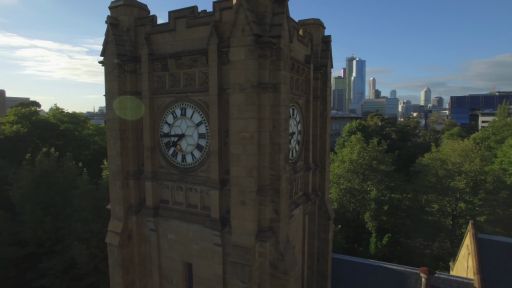Update on University response to COVID-19 pandemic

The University of Melbourne has provided an update on its plan to combat an almost $1 billion revenue shortfall as a result of the COVID-19 pandemic crisis.
Vice-Chancellor Duncan Maskell said the University’s current financial forecast for 2020 indicates a revenue shortfall of $177 million – an improved position from the expected $309 million shortfall previously forecast.
The revised forecast reflects the latest data from the September student census, which shows higher-than-expected student enrolments and load in semester two. In addition, the University’s research income is significantly higher than this time last year, although this funding is directed towards specific research projects and will not directly offset the University’s operating loss.
Professor Maskell welcomed the slightly improved financial position in 2020 but said the University still faces significant challenges in the years ahead. “The pandemic crisis is far from over, there is still a long way to go and we have some very tough years ahead, but the savings measures we are taking means that we can safeguard our institution for the future.
“The improved outlook for 2020 is obviously helpful but the University will still run an operating loss this year of approximately $60 million, and the outlook for 2021 remains very uncertain. This is not sustainable and means that the need to continue to make significant savings over the next two years does not change. We must still reduce our annual operating costs and ultimately resize our operations, to return the institution to a financially sustainable position on an ongoing basis,” Professor Maskell said.
“As soon as our borders open up, we need to do everything possible to get international students back to Victoria as safely and quickly as possible. The University is committed to working closely with the State and Federal Governments to get students from around the world back into Victoria and back on campus.”
Professor Maskell said the improved outlook in 2020 is a credit to the University’s staff.
“Our staff have put in enormous efforts to attract, retain and support students amid the pandemic, particularly through their commitment to improving our online teaching and learning, while continuing to conduct brilliant research under challenging circumstances,” Professor Maskell said.
“Our COVID-19 support programs have also been positively received by our students, helping to ensure confidence in their education at Melbourne. The high level of professionalism and agility shown by everyone across all areas of work required to run a large university under such changed circumstances is deeply appreciated. This is an outstanding achievement.”
Professor Maskell said the University remains totally committed to prioritising the retention of jobs wherever possible. In this regard, and in the light of the improved 2020 financials, several adjustments to the Pandemic Reset Program plan have been made.
The University will continue with making non-salary related savings to take effect in 2021 and 2022, as identified in Divisional savings plans. It will continue to freeze recruitment to unfilled positions as reflected in those savings plans. It will also continue to reduce capital investment, other than for work previously committed or critical to operations.
The University will look to introduce a voluntary redundancy program this year, dependent on a decision from the Fair Work Commission. Both academic and professional staff will be invited to register their expressions of interest. The University also plans to establish a Senior Academic Enhanced Retirement Scheme (SAERS), subject to approval from the Australian Taxation Office.
The University will continue with its Professional Services Redesign programme, which aims to improve the quality and efficiency of its shared service model in order to provide better support for the core academic work of the University. Staff members will be consulted about these changes before the end of the year. Changes will be put into operation in a phased manner in 2021.
Professor Maskell said more detailed student enrolment data that will be available in early 2021 will provide greater clarity about the University’s financial position, and will inform decisions about what further savings may be required.
“We will continue to monitor the situation the University is facing, as a result of COVID-19. If the situation changes – for better or worse – we will adjust our plans accordingly and keep close engagement with staff and students throughout,” Professor Maskell said.